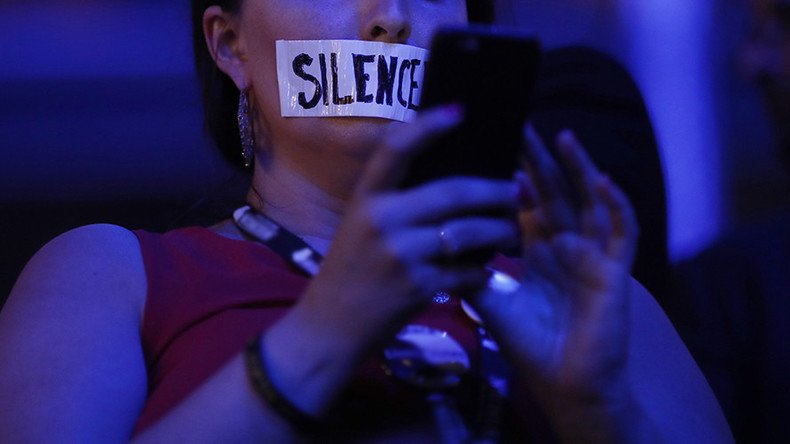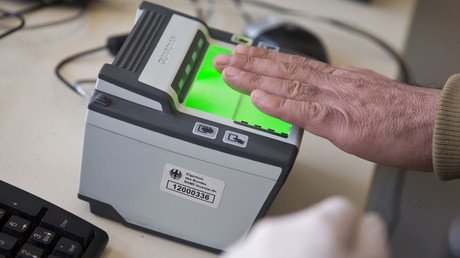‘We don’t live in China!’ Theresa May’s online counterterrorism plans likened to dictatorship

Theresa May’s plan to impose fines on Google, Facebook, and other web giants if they fail to monitor and remove extremist material online has been compared to Chinese internet censorship by the government’s Independent Reviewer of Terrorism Legislation.
The Prime Minister announced she would seek new counterterrorist measures following a spate of attacks on the UK.
May met with French President Emmanuel Macron last month to discuss making internet giants “legally liable” for failing to crackdown on the spread of extremist propaganda.
However, Max Hill QC, the UK Independent Reviewer of Terrorism Legislation, called into question the effectiveness of the new plans.
“What is the appropriate sanction? We do not live in China, where the internet simply goes dark for millions when government so decides,” he said, according to the Times.
“Our democratic society cannot be treated that way.”
Speaking at a conference entitled Terrorism and Social Media in Swansea, Hill said the new measures would not only fail to address the problem, but also lead to much of the material ending up on the dark web, where it would harder for authorities tasked with foiling terrorist attacks to access.
He stressed that, rather than swim against them, the government should seek “ever greater liaison and cooperation between law enforcement and tech companies,” saying the latter should do everything possible to curb the flow of extremist material online.
“Companies who make eye-watering sums of money from our everyday chatter need to be brought firmly onside, they do not need to be forced offside,” said Hill.
The comments will come as a new blow to Theresa May, who has placed counterterrorism at the heart of her policies as both Prime Minister and Home Secretary.
In the run up to the general election on June 8, the PM she would be prepared to rip up human rights law if it meant being able to restrict terrorist suspects and impose harsher sentences.
The internet giants have come under growing pressure to rid their platforms of material that the authorities deem extremist, including terrorist ‘how-to-guides, particularly since it emerged the Manchester bomber Salman Abedi had learned how to assemble an explosive from YouTube and other websites.
Lord Carlile of Berriew, QC, a predecessor of Hill, said fining companies should be the “last resort,” but agreed the government warning was necessary to make the internet giants take the threat posed by online extremist material more seriously.
“The technology companies need to be taking very seriously what the prime minister said.
“They need to be very much aware of how strongly the government feels, and how strongly many experts feel that they have much more to do than they have done so far,” he said.
Facebook, Microsoft, Twitter and YouTube created a forum to tackle extremist propaganda last week.
The Home Office welcomed the decision, although it said the companies should go “further and faster” to solve the issue.














